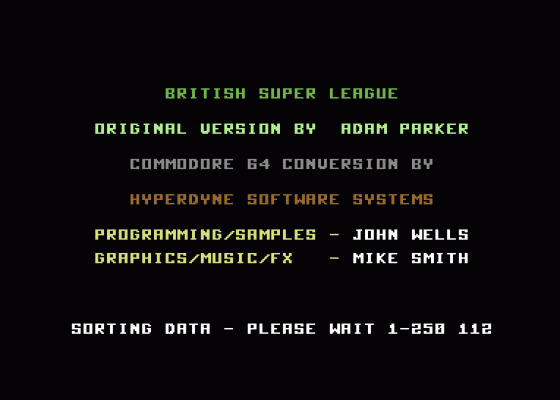
Zzap
 1st May 1990
1st May 1990
Categories: Review: Software
Publisher: Cult Games
Machine: Commodore 64
Published in Zzap #61
It's third time lucky for Cult. The last of their trio of footy releases is the only one not to score an own goal.
You get to manage one of the sixteen teams in the fictional British Superleague. All the usual management features are included: team selection, buying/selling of players, and finances (instead of getting a bank loan you must ask the club's directors for cash).
The transfer system is one of the game's most impressive features. You can bid for any transfer-listed player from the other teams. Any of your own team's players can also be put on the transfer list. However, you'll have to accept any other team's offer for him - not very fair.
The oddest thing about the game is that the players don't have ratings: the only way to know how good they are is to watch them in action. The match display is an abstract one. A plan view shows both teams' completely static players. Strangely, the ball isn't shown: instead, the players around its imaginary position flash (without getting arrested). Whichever one gets the ball is then highlighted before he kicks it up the field. Goals are greeted with a spectacular cry of "Goal!" from the otherwise silent match commentator. Either of your two substitutes can be put on at any time. And if you find the action tedious, you can skip to the final result.
To scout for new players you can 'record' one of the other matches taking place. However, all you get is a very brief match report screen showing the score and the numbers of the scorers (I should ask for my money back on that video recorder if I were you!).
Sadly, this isn't the only flaw. Even though each player has a specified position (central defender, left winger, centre forward, etc) they can play in any position seemingly without any adverse effect. And no matter how many defenders, midfielders and attackers you have in the side, they always appear in the same formation during the match - there is a 'formation number' on the team selection screen, but its relevance is a complete mystery to me.
Still, for the budget price, British Superleague isn't bad value. Though it's not in the First Division of management games, it scores most for its attempts at innovation.
British Super League



